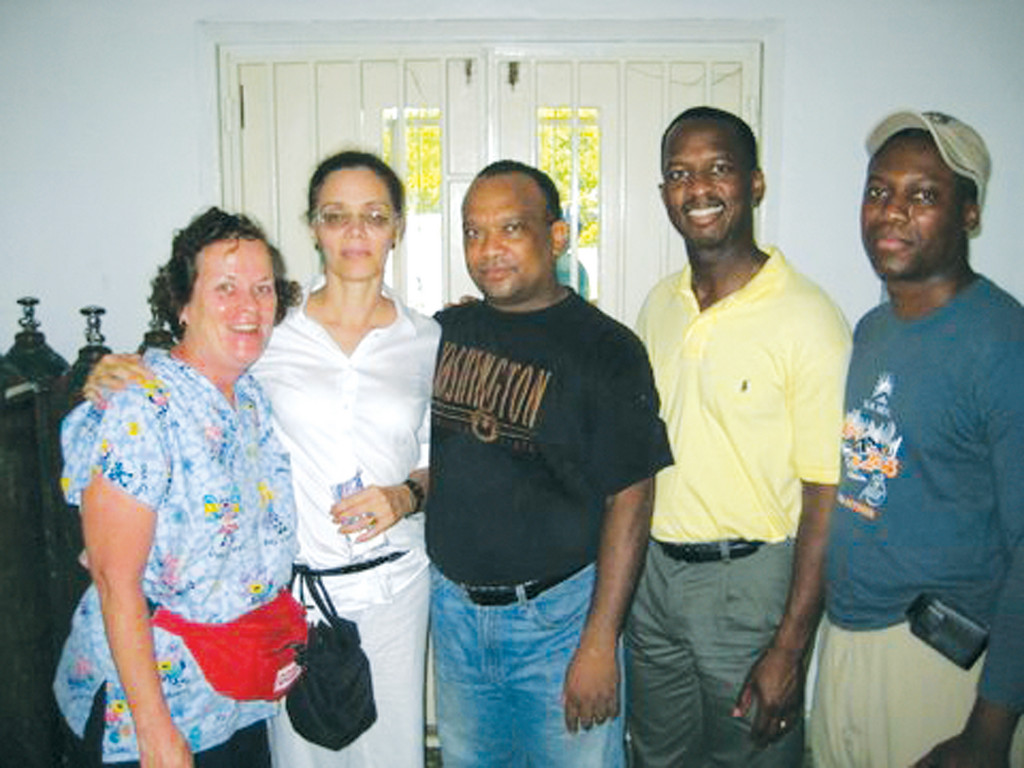Returning to Haiti
South Nassau Communities Hospital workers have made many trips since 2010 earthquake
It has been more than a year since an earthquake struck Haiti last January. And since then, dedicated workers from South Nassau Communities Hospital have made many trips to the impoverished nation to help aid the people.
Dr. Delcasse Joseph, a SNCH surgeon, and Sharon Erickson, a nurse, were both on the ground in Haiti 48 hours after the earthquake. They were part of a team of doctors and caregivers, all of whom were performing emergency care in the wake of the devastation.
Since then, Joseph — a native Haitian who moved to America over 30 years ago — has returned to Haiti four more times and Erickson has returned three. And from their time there, both have said that Haiti is still a long way from recovery.
“The magnitude of the disaster was such that it’s going to take a long, long time to fix,” said Joseph. “With all of this foreign help, sometimes the indigenous infrastructure of the country and the health care providers that existed before aren’t getting any support. So in some respects, it creates a slight problem. You have so many volunteers that the people who used to do this for a living might not find as much work to function.”
Erickson said that Port au Prince — the epicenter of the quake — is still littered with rubble. “There’s no place to put it,” she said. “They don’t have a sanitation system in place to begin with. And you’re talking about massive pieces of cement and concrete and stuff.”
But Erickson said she saw fewer people outside the hospitals in tents. On her most recent trip, Erickson’s group was half medical workers and half construction workers. They were in Haiti for eight days, and the medical team managed to see 981 patients while the construction team built 81 houses.
“The houses aren’t like ours, but still, 81 people who didn’t have a roof over their heads have it,” said Erickson.
Both Joseph and Erickson’s roles as aid workers to Haiti have changed in the months since the earthquake. When they first went immediately after the quake, they were there for disaster relief: treating crushing injuries, amputating limbs and trying to save as many people as they could. Since then, both have moved from Port au Prince to other parts of the country, performing basic medical care rather than emergency triage.
“In the north and the south, there’s been significant need for health care and health care volunteers,” said Joseph. “And those needs persisted. And even though a tremendous amount of volunteerism has occurred in Port au Prince, there’s still a tremendous need throughout the rest of the country for health care people.”
Still, the recovery in Haiti is slow, and the need for aid is continuous. And in Joseph’s eyes, the earthquake only exacerbated problems that were already there.
“People feel better thinking that the earthquake destroyed Haiti,” he said. “But I tend to think that Haiti was in a pretty bad situation before the earthquake. The earthquake only made matters worse.”
But both Joseph and Erickson agreed that the Haitian people have an indomitable spirit. They are always grateful for the work that the medical missions do. And it’s one of the reasons Erickson keeps returning. Both are planning to return later this year.
“I went on medical missions with the goal of trying to give back for all I’ve been given in my life, and I don’t think I will ever be able to accomplish that,” said Erickson. “Because no matter what I give, I’ve been given back at least 1,000-fold, if not more. So what ever little I can do to help somebody, I’d be happy to.”






